Generative AI (artificial intelligence) isn’t new, but the recent explosion of AI chatbots, AI image-generation tools and AI-driven applications leaves many small business owners in new and unfamiliar territory. What is generative AI?
How can entrepreneurs use generative AI in their small businesses?
While people are continuing to experiment with what AI is capable of versus what grabs the headlines, there are already some simple ways in which generative AI can help small business owners.
Our guide aims to help small business owners learn more about generative AI and how it can help save their small business time and money.
- What is generative AI?
- 5 ways to use generative AI for small business
- Generate creative and unique business names
- Automate content creation
- Enhance customer service
- Support for social media management
- Optimize content for SEO
- Summing it all up
What is generative AI?
Generative AI refers to a type of artificial intelligence that is capable of creating new content autonomously by learning from existing data. This can include generating text, images, music, or even design concepts by using advanced machine-learning algorithms, such as deep learning and neural networks.
OpenAI’s ChatGPT and DALL-E are dominating the news, but new chatbot and AI art generation tools are being rolled out on a near-daily basis. From Google’s Bard to Meta’s BlenderBot, large tech companies are rolling out increasingly sophisticated generative AI tools.
It’s easy to feel overwhelmed, but it’s important to understand generative AI and what it can do (along with what it can’t do).
AI technology is crucial for small businesses to stay competitive in today's global market. AI can help small business owners improve their efficiency and productivity by:
- Writing text for websites or blogs
- Automating routine tasks
- Streamlining decision-making using data
- Improving the overall customer experience
Interested in learning more about how to use generative AI for small businesses? Let’s take a closer look at some examples that you can apply to your business.
Related: AI in business — 4 best real-world uses
A quick word of caution
This guide is meant as a general overview of how generative AI can help small business owners save time, and often money when running their businesses.
We strongly recommend closely reviewing the output of the AI tool that you intend to use, as AI can return incorrect, false or outdated information or may include content containing others' intellectual property.
Additionally, be aware that generative AI tools may save the information you enter. It's best to avoid entering any commercially sensitive or proprietary information in your prompts (these are the questions or tasks you ask an AI tool to help with).
5 ways to use generative AI for small business
Here are five examples of how generative AI can help, from getting started with business ideas to optimizing your website content.
1. Generate creative and unique business names
The biggest barrier to getting started is sometimes a blank screen. Generative AI is great for helping to get your creative juices flowing. So if you’re stuck with writers block, or if thinking of a catchy business name isn’t your strong suit, consider using AI to kick-start the process.
AI can generate a large number of potential business names in a short amount of time, giving you a list of unique and creative names that you might not come up with otherwise.

And, if you’re not completely happy with the recommendations, you can improve the generated names simply by refreshing your prompt and telling the AI chatbot what you’d prefer to see, ensuring the final name selection is well-suited for your business.
2. Automate content creation
Artificial intelligence has the potential to revolutionize the way small business owners create content for their businesses. By simplifying the content creation process and enhancing the effectiveness of published materials, such as website content, videos, newsletters or blogs, AI can save entrepreneurs both time and money.
Using advanced natural language processing algorithms and deep learning techniques, AI-powered content-generation tools are able to analyze existing content within a specific industry or niche. Using that information, AI tools can then generate relevant and engaging content for you.
You can tailor the output to match the overall vibe of your business.
Does your small business tend to be more light-hearted and fun? Add those adjectives to your prompt to help the AI tool write content that fits your brand voice.

Additionally, AI can automate the process of content scheduling and distribution across various channels, allowing you to reach your customers with consistent and timely communication.
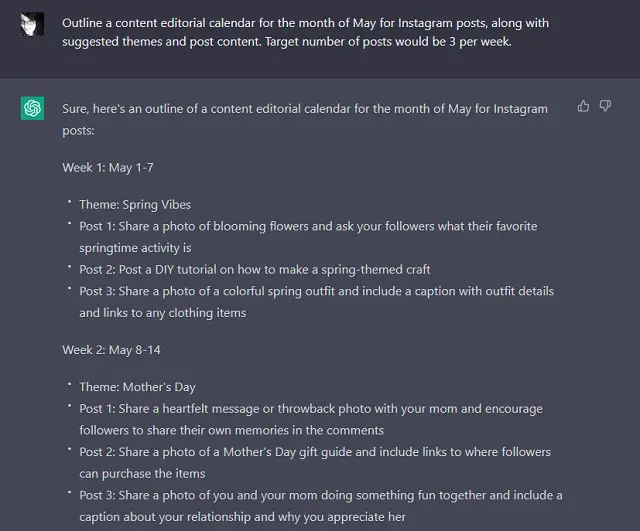
By streamlining the content creation process and reducing the time and effort required, AI can free you to focus on other critical aspects of your business, ultimately helping to drive growth and success in the competitive marketplace.
3. Enhance customer service
Another area where AI can be a powerful tool for small business owners is customer communication.
With AI, you can quickly craft personalized responses, such as thank-you emails to customers after they make a purchase or sign up for a service. This creates a sense of appreciation and helping to foster customer loyalty.

AI can also streamline the writing process for creating follow-up messages, such as reminders for upcoming appointments or subscription renewals, making it easier to maintain a strong connection with clients.

Customers aren’t always happy with the service they’ve received. Another task that AI can help with is responding to customer inquiries and complaints by analyzing the content of their messages and generating customized responses that address the specific issue at hand.

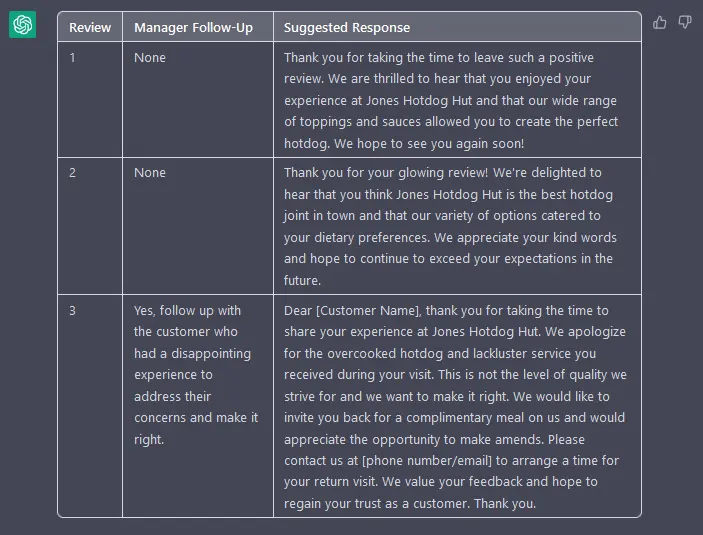
Customer service interactions can quickly eat into a small business owner’s day.
However, AI-powered chatbots and virtual assistants can handle multiple customer interactions simultaneously for you. This results in a more cost-effective customer service operation.
By providing fast and personalized responses to customers, AI-powered tools can enhance the overall customer experience, leading to higher satisfaction rates and a stronger brand reputation, all while freeing up your time.
4. Support for social media management
Social media is a necessary part of owning a small business, but managing multiple platforms and attempting to brainstorm creative new content can be draining. AI can help out here as well.
Here are a handful of tasks that AI is able to help with:
- Brainstorm creative captions for image-based posts
- Create editorial calendars based on local holidays or celebrations
- Generate conversation starters for a social media audience
- Write simple video scripts
- List creative content ideas
- Craft ad copy to grab people’s attention
And this list isn’t exhaustive. AI-based tools are a great way to get the creative process rolling, especially on days when your creativity feels like it’s in a rut.
AI is also helpful with identifying key moments and relevant events for your target audience. This would include local celebrations such as festivals and parades, as well as industry-specific holidays. Again, this saves you time as you look to create blogs, emails and social posts that appeal to your audience on a more personal level.
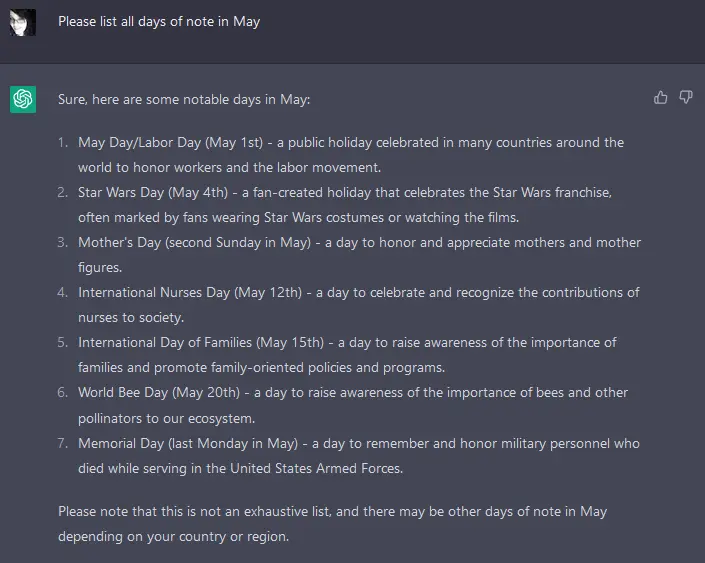
Another AI advantage is the ability to help small business owners maintain a consistent posting schedule, which ensures your business remains visible on social media platforms.
Consistent activity on social media keeps your followers engaged and establishes your business as reliable and authoritative.
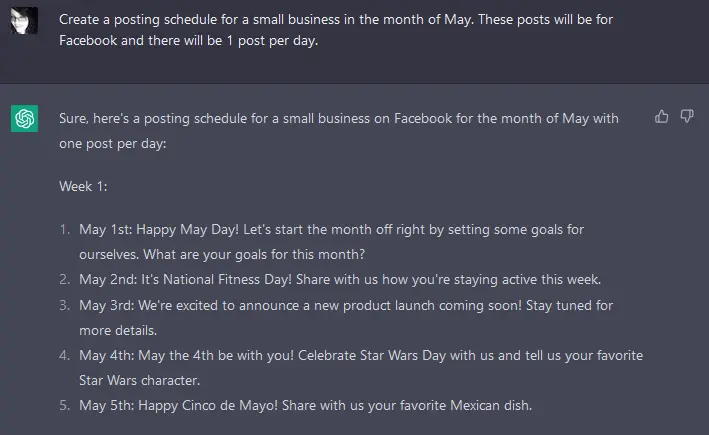
The benefits that AI brings to the table for a small business owner ultimately contribute to increased brand visibility and a stronger connection with the target audience, making AI an invaluable tool for businesses looking to thrive in today’s digital age.
5. Optimize written content for SEO
For small businesses looking to drive traffic to their websites, search engine optimization (SEO) is still king. AI is able to give SEO novices the boost they need to get found online.
Keyword research is important for SEO, and AI is able to help you identify relevant and high-performing keywords in your industry.
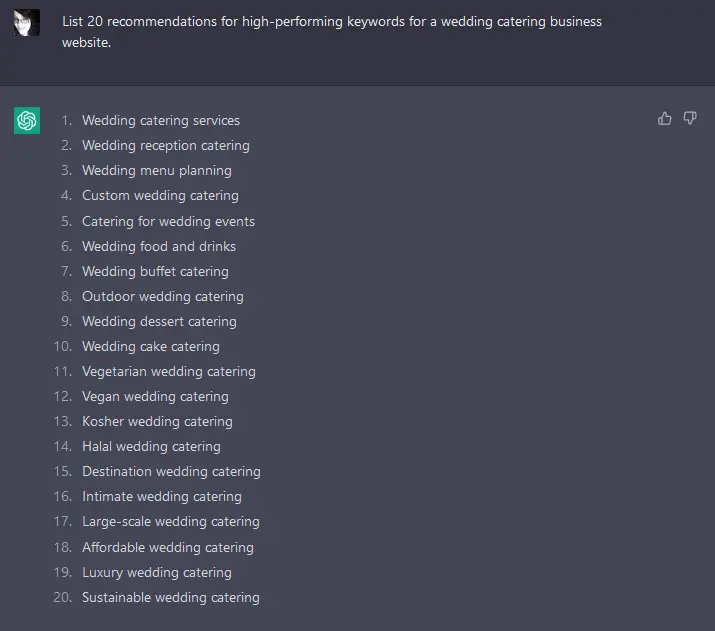
In addition to helping you brainstorm keywords, AI can help write the text for your website.
AI is able to generate SEO-friendly content that includes target keywords while still providing value to the reader. This helps improve your website's search engine ranking and increases the likelihood of attracting future customers.
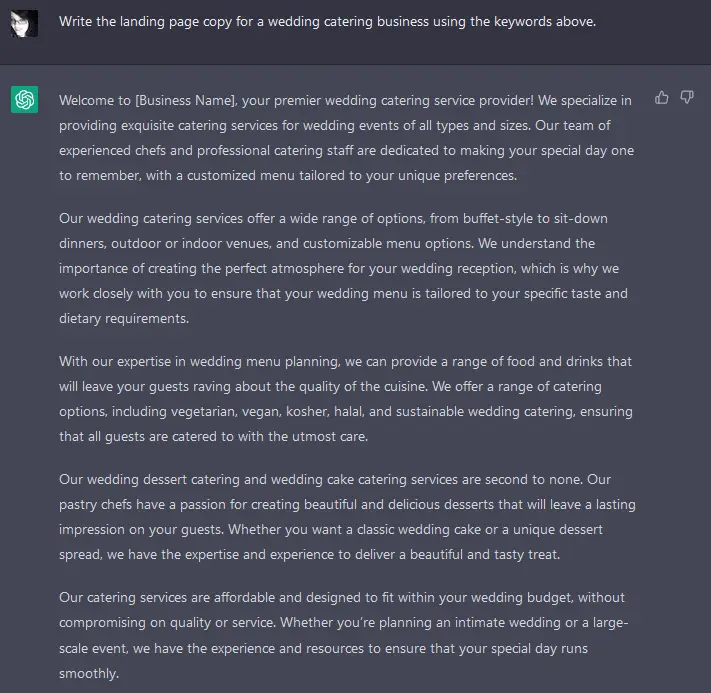
AI can also create optimized meta tags and descriptions for your web pages, ensuring that they accurately reflect the content and include relevant keywords. These elements play a significant role in how search engines index and rank your web pages, which influences their visibility in search results.
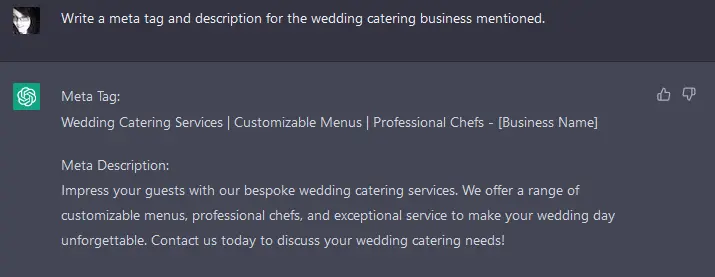
Another factor for SEO is website update frequency, and AI is able to assist here by suggesting content for blog posts or articles to publish on your website.
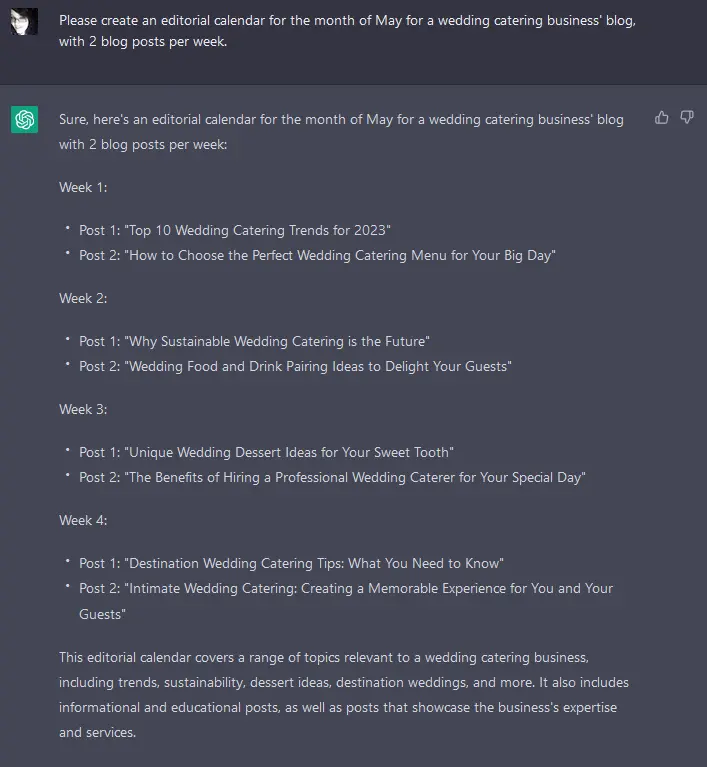
And, if you need help coming up with a first draft for your blog post, AI can generate keyword-rich text. You can then review the text for accuracy and make tweaks so it sounds like your business.

Summing it all up
Hopefully, we’ve given you some useful insights into how this new and evolving technology can help you make the most of this new technology, and hopefully save save time and money.
Just remember, it's crucial to check the output of AI tools and always avoid typing in private information. Then start using generative AI to streamline tasks and improve your customer experience!







